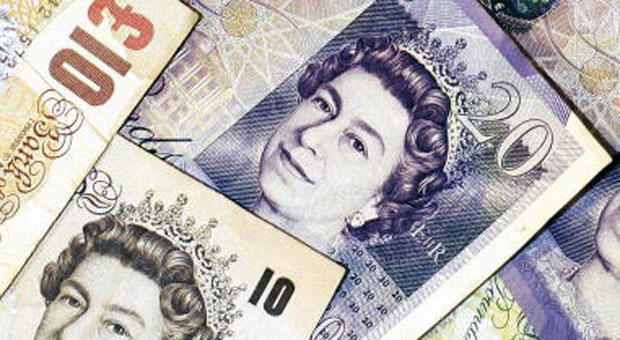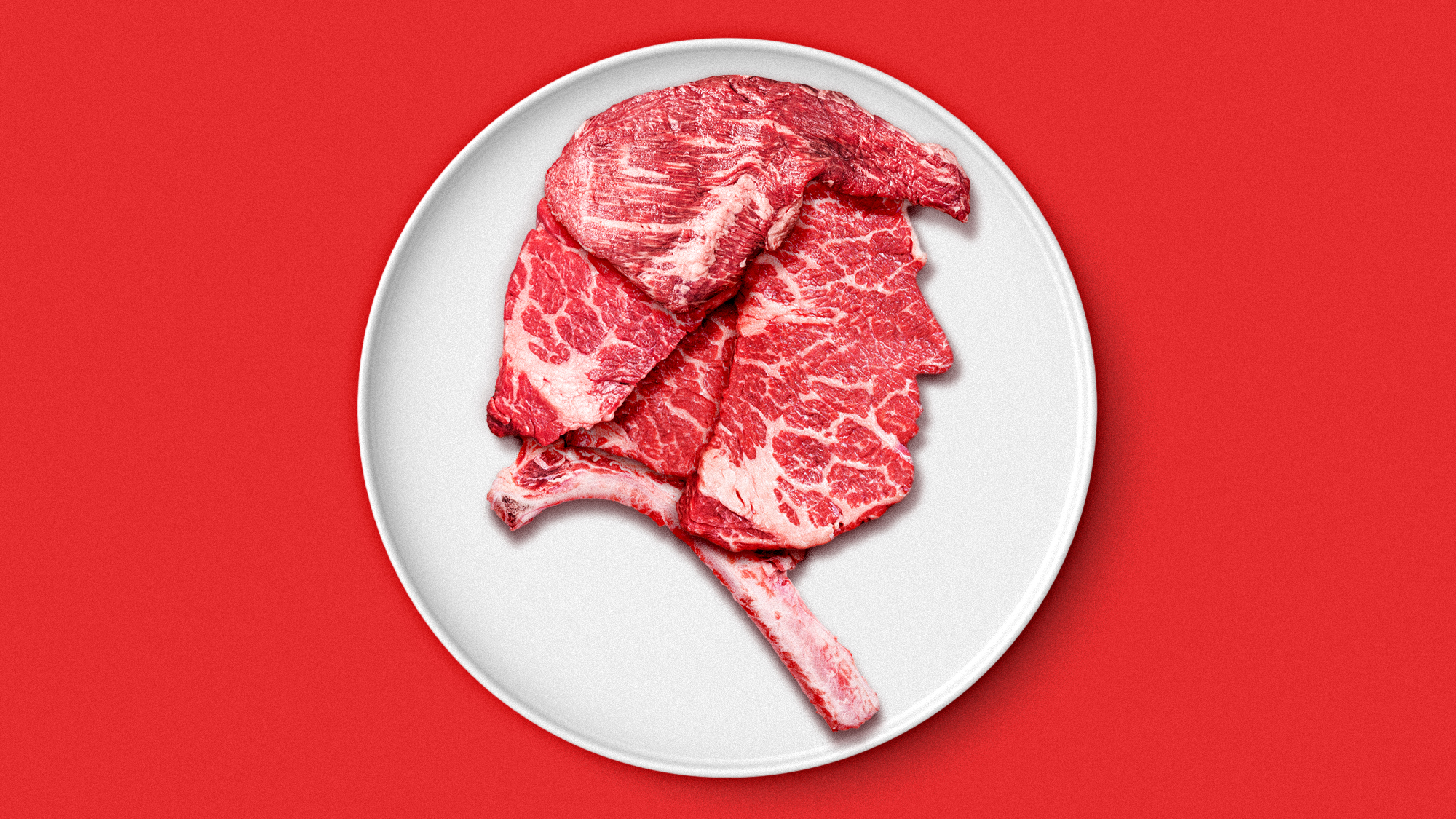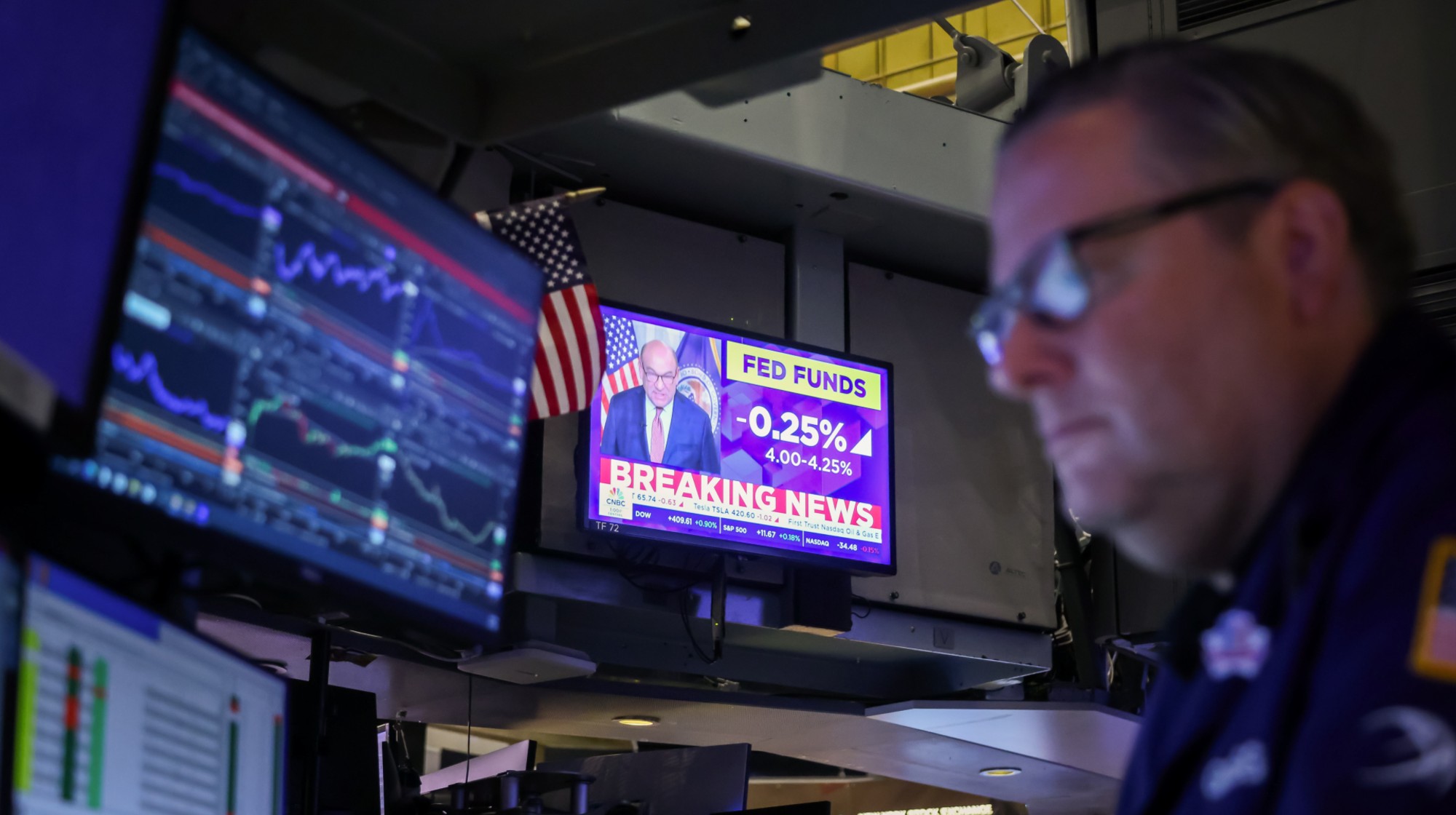Deflation: UK prices are now falling, but is that a bad thing?
It's official: Britain has slipped into deflation, with prices falling for the first time since the 1960s

A free daily email with the biggest news stories of the day – and the best features from TheWeek.com
You are now subscribed
Your newsletter sign-up was successful
The UK has tipped into deflation for the first time in 50 years, as prices for goods and services fell by 0.1 per cent in the year to April.
The last time inflation dropped below zero was in the 1960s, the Financial Times reports.
Britain has been "teetering on the brink" of deflation for several months, the FT says, due to a combination of low oil prices, a strong pound and the ongoing supermarket price war.
The Week
Escape your echo chamber. Get the facts behind the news, plus analysis from multiple perspectives.

Sign up for The Week's Free Newsletters
From our morning news briefing to a weekly Good News Newsletter, get the best of The Week delivered directly to your inbox.
From our morning news briefing to a weekly Good News Newsletter, get the best of The Week delivered directly to your inbox.
The Bank of England says that inflation will likely remain close to zero for the rest of the year before beginning to rise around November or December. So what exactly is deflation and is it a bad thing?
What is deflation?
Deflation is a general decrease in the price of goods and services - the opposite of inflation.
How is deflation measured?
A free daily email with the biggest news stories of the day – and the best features from TheWeek.com
The same way as inflation: in the UK, the two main measures are CPI (the Consumer Price Index) and RPI (the Retail Price Index), both compiled and published every month by the Office for National Statistics. The CPI is the average price each month of 700 different products and services which UK consumers might use or purchase. These goods are as prosaic as baked beans and takeaway fried chicken.
Where has deflation struck?
Writing for The Independent at the beginning of the year, David Blanchflower predicted that there was "deflationary contagion in the air". Switzerland, the eurozone and the US have all slipped into deflation in recent months. On Thursday last week, the headline Producer Price Index, which measures price changes for goods, services and construction in the US, showed that prices there fell by 0.4 per cent in April compared to March, and by 1.3 per cent versus last April, CNBC reports.
What is driving deflation in the UK?
Falling prices in the UK have been largely driven by the 50 per cent fall in oil prices over the past six months, which has led to cheaper petrol at the pump and lower delivery costs for a range of products. Transport services including air and sea fares are also down, the ONS said, and the ongoing price war between competing supermarket chains has contributed to declining prices.
What effect does deflation have?
Simply put, things get cheaper. This might seem like a benefit to consumers - but economists believe it can lead to a vicious circle. Because people know prices are falling, they hold off from making purchases. Businesses therefore have less trade and are forced to lower their prices to compete. They will also make redundancies - and the people they let go will no longer be able to buy goods or services, meaning businesses will have less trade... And so on. This is known as a deflationary spiral.
How has the Chancellor greeted the news?
After the shift to negative prices was announced yesterday, George Osborne took to the airwaves to herald a new period of cheap living.
"We should welcome the positive effects that lower food and energy prices bring for households at a time when wages are rising strongly," he said. However, the chancellor was being "economical with the truth", according to The Times' economics editor, Philip Aldrick.
Osborne's argument that wages are rising strongly is "strange", Aldrick says. With growth at 1.9 per cent "weekly earnings are rising more slowly than they did as recently as December and by less than half the 4.25 per cent average in the decade to 2007".
Equally, the Bank of England predicts that the current period of negative prices is unlikely to last. Inflation will return to 0.7 per cent by the end of the year and to 1.4 per cent by March next year as oil prices gradually recover, the bank predicts.
Consequently, the BoE has advised people to spend now to make the most of the currently falling prices because, quite plainly, "they are not going to last long".
Where has deflation been a problem before?
The Great Depression of the 1930s saw a deflationary spiral. More recently, Japan has been in gentle deflation (an average fall of 0.23 per cent each year between 1999 and 2013). Blanchflower quotes former US Fed chairman Ben Bernanke as saying that Japan's modest deflation "has been associated with years of painfully slow growth, rising joblessness, and apparently intractable financial problems in the banking and corporate sectors".
Is there a silver lining?
That depends who you believe. Writing in the Daily Telegraph in February, Roger Bootle says there is now a heated debate about 'good' deflation versus 'bad' deflation. 'Good' deflation is the idea that cheaper imported goods may leave consumers with more money in their pockets, without triggering the vicious circle of falling prices and rising unemployment. The UK imports much more oil than it produces - so if that oil is cheaper, surely that's a good thing? Not necessarily, warns Bootle - the UK also exports goods and services and, if the fall in oil prices reflects recession abroad, income from them will decline.
Are we sure that deflation has any effect, positive or negative?
The old joke states that if you put two economists in a room they'll soon come up with three opinions. And on deflation there is a third view too: that it makes very little difference to economic prospects.
"By themselves, persistent declines in the prices of goods and services have no measurable effect on growth in either direction, across all time periods covered," the Financial Times suggests. "By contrast, falls in stock prices, and especially house prices, are quite damaging, and appear to have become more harmful over time."
-
 Tourangelle-style pork with prunes recipe
Tourangelle-style pork with prunes recipeThe Week Recommends This traditional, rustic dish is a French classic
-
 The Epstein files: glimpses of a deeply disturbing world
The Epstein files: glimpses of a deeply disturbing worldIn the Spotlight Trove of released documents paint a picture of depravity and privilege in which men hold the cards, and women are powerless or peripheral
-
 Jeff Bezos: cutting the legs off The Washington Post
Jeff Bezos: cutting the legs off The Washington PostIn the Spotlight A stalwart of American journalism is a shadow of itself after swingeing cuts by its billionaire owner
-
 Will Trump’s 10% credit card rate limit actually help consumers?
Will Trump’s 10% credit card rate limit actually help consumers?Today's Big Question Banks say they would pull back on credit
-
 What will the US economy look like in 2026?
What will the US economy look like in 2026?Today’s Big Question Wall Street is bullish, but uncertain
-
 Is $140,000 the real poverty line?
Is $140,000 the real poverty line?Feature Financial hardship is wearing Americans down, and the break-even point for many families keeps rising
-
 Fast food is no longer affordable for low-income Americans
Fast food is no longer affordable for low-income AmericansThe explainer Cheap meals are getting farther out of reach
-
 Why has America’s economy gone K-shaped?
Why has America’s economy gone K-shaped?Today's Big Question The rich are doing well. Everybody else is scrimping.
-
 From candy to costumes, inflation is spooking consumers on Halloween this year
From candy to costumes, inflation is spooking consumers on Halloween this yearIn the Spotlight Both candy and costumes have jumped significantly in price
-
 Why are beef prices rising? And how is politics involved?
Why are beef prices rising? And how is politics involved?Today's Big Question Drought, tariffs and consumer demand all play a role
-
 Fed cuts interest rates a quarter point
Fed cuts interest rates a quarter pointSpeed Read ‘The cut suggests a broader shift toward concern about cracks forming in the job market’